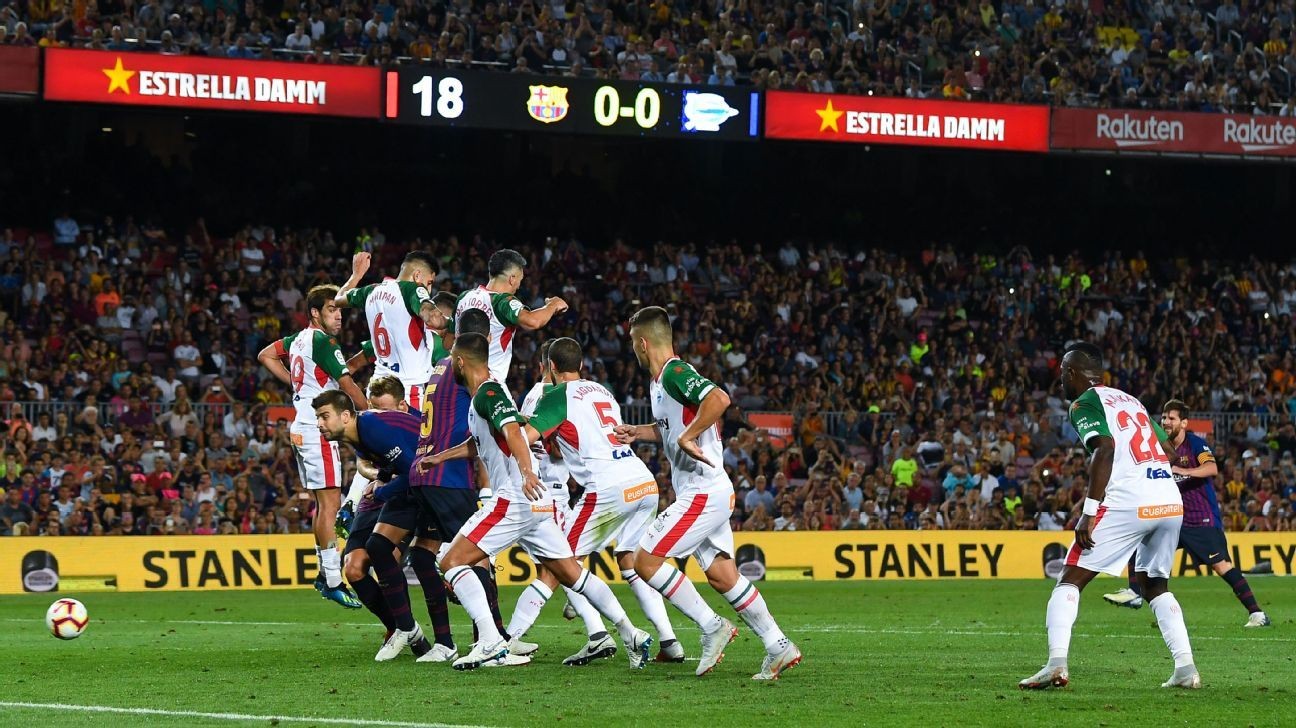
The Spanish Players’ Union has already voiced its opposition, as have some fan groups. Overall though, we’ve not yet seen the universal backlash Scudamore faced in 2008. And odds are, we won’t.
In this case, the differences between England and Spain matter. Whereas the Premier League has had a distinctly egalitarian ethos from the start — which is why the 2008 plan involved every team playing a match broad — La Liga has been dominated (on the pitch and politically) by two clubs, Real Madrid and Barcelona.

As a result, expect the project to start with only one or two games, always involving one of the big boys, rather than, say, Huesca v Eibar. That will minimise the disruption. And even though some clubs will have to forgo a home game (and, in fact, if they are playing Real Madrid or Barcelona, it will likely turn into a de facto away match, since the crowd will presumably favour Real or Barca), you’d assume that financially it will be worth their while.
In fact, if La Liga are smart about it, they could turn it into event. A game in the U.S. every couple of years for a Villarreal, an Athletic Bilbao or a Celta could be seen as something special, with supporters, perhaps with subsidized travel, crossing the ocean. Spain doesn’t have the same cultural of traveling fans that England has for “ordinary” matches, so there would likely be less of a backlash from the folks who suddenly need to travel to Miami rather than Madrid to watch their team.

Supporters are the lifeblood of the game, it’s been said a million times. But, equally, we’re reaching the point where the vast majority of fans experience the match through broadcast media, not in person – and often not in the league’s country. To those folks, it matters a whole heck of a lot less.
The more interesting question is what La Liga does with the additional revenue raised. Sure, rising tide lifts all boats, but it’s not as if Getafe are going to turn into Barcelona (or even Valencia or Seville) by playing games abroad. The big boys will still drive revenue.

The issue, then, becomes: How will La Liga share the money? If it helps teams achieve some level of financial solidity (something that many smaller clubs in Spain have struggled with over the years), it can be a positive all-round. The mega-clubs will continue to conquer market share and grow their slice of the sports entertainment dollar, the “upper middle class” (Sevilla, Valencia, Athletic Bilbao, etc.) will see their brands strengthened and their revenues grow, while the rest — with some proper oversight from La Liga — will avoid the boom-and-bust cycle that has long afflicted the minnows.
That’s how the project can succeed as something other than a cash grab for Spain’s one-percenters. You can only hope that’s what Tebas has planned.